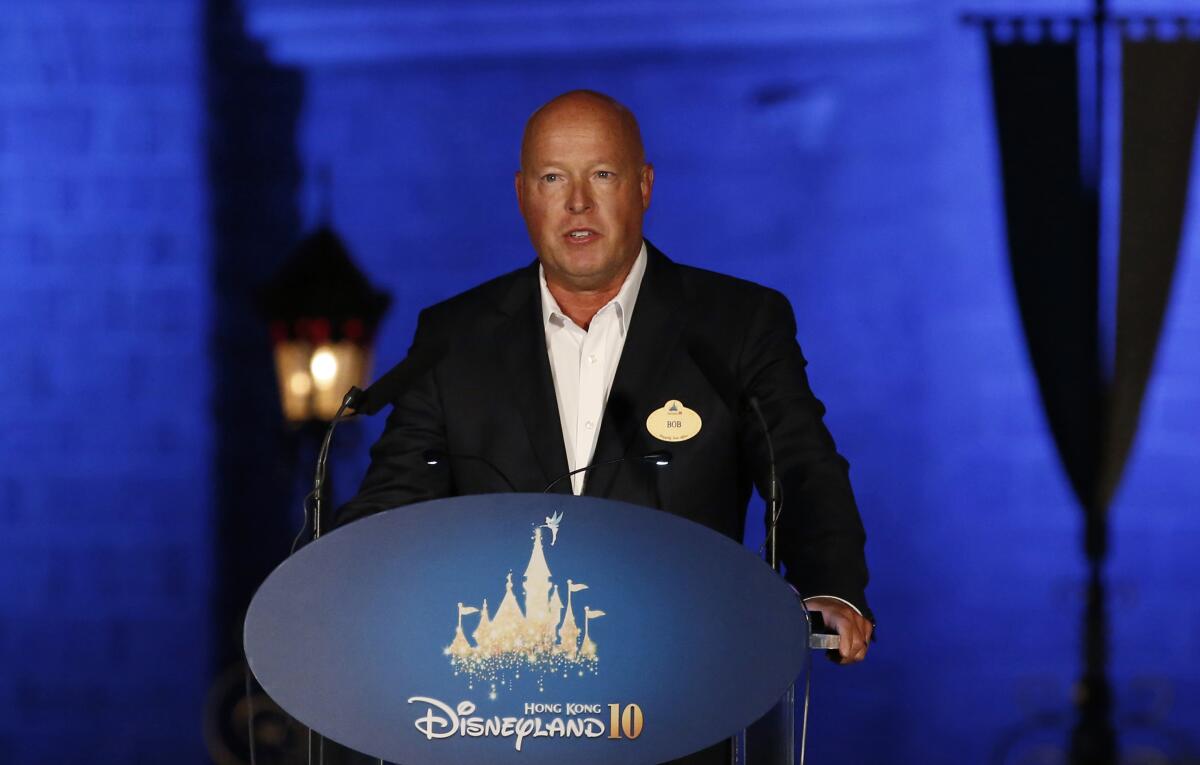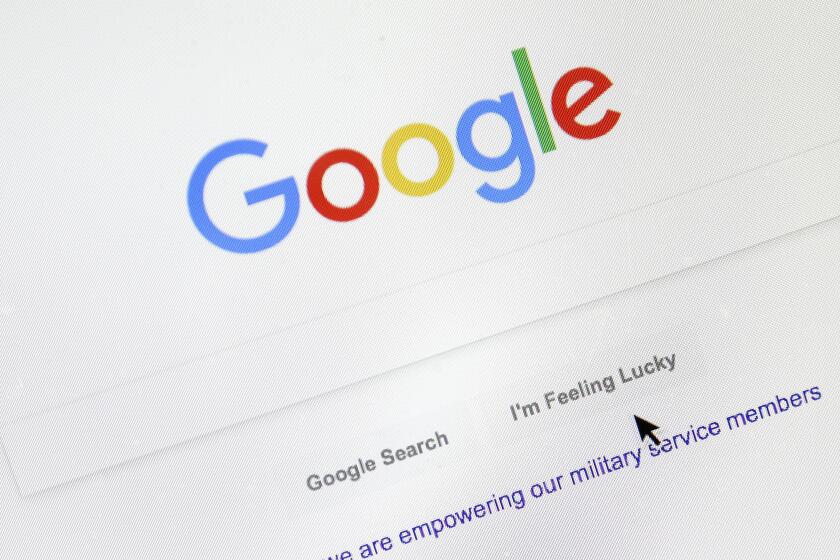Disney CEO warns ‘the world is changing’ and so are talent deals

Walt Disney Co. Chief Executive Bob Chapek acknowledged the strain on talent relations as Hollywood companies shift their focus to streaming services — often at the expense of theatrical distribution.
“Certainly the world is changing, and talent deals going forward will have to reflect the fact that the world is changing,” Chapek said Tuesday at an investor conference.
Appearing virtually during the Goldman Sachs 30th Annual Communacopia Conference, Chapek made some of his first public comments about the delicate and often testy state of talent relations in Hollywood since Scarlett Johansson sued Disney in July.
The actress alleges the Burbank entertainment behemoth cheated her out of compensation for her starring performance in “Black Widow” after Disney released the Marvel movie on the Disney+ streaming service the same day it arrived in theaters. Disney maintains that it properly paid Johansson for movie sales on Disney+, and that its pivot in release strategy was due to the pandemic, which has accelerated changes in consumer behavior.
The company has filed legal documents to request that Johansson’s high-profile lawsuit be settled in private arbitration. Her team wants the case tried in open court.
Without specifically mentioning the Johansson suit or “Black Widow,” Chapek reiterated that Disney still believes in theatrical distribution — but its biggest strategic priority is building Disney+. The company also plans to put its muscle behind its companion streaming brands, including Hulu and ESPN+.
The problem, Chapek said, is that the company has found itself grappling with talent contracts that were struck three or four years ago — long before the race to streaming and before the COVID-19 pandemic upended Hollywood. Johansson’s deal was fashioned in 2017.
“We are sort of putting a square peg into a round hole right now where we’ve got a deal that was conceived under a different set of conditions that results in a movie being released in a different set” of circumstances, Chapek said.
“We are just figuring out our way to bridge the gap,” he added. “But ultimately, we believe that our talent is our most important asset. And, as we always have, we will compensate them fairly per the terms of the contracts that they agreed to.”
Chapek surprised investors by announcing a slowdown in subscriber growth for Disney+ during the current quarter to “mid-single digits of millions” of new customers. During the last fiscal quarter, Disney reported a surge in new subscribers, saying Disney+ reached 116 million subscribers during the quarter that ended July 3, up from the 103.6 million in its prior quarter.
Disney’s booming stock price for the last year has been tied to the global growth of Disney+.
Disney shares dropped 4.17% on Tuesday, or $7.44, to $171.17.
Chapek said the emergence of the Delta variant of the coronavirus has prompted more production delays, which could cause some disruption to the programming pipeline.
The longtime parks chief became CEO of the entire company in early 2020. He has been the architect of a dramatic restructuring at Disney to respond to the conditions forced by the pandemic, including theme park shutdowns and accelerated changes in consumer behavior.
Although the Delta variant resulted in a slight dip in theme park visits, Chapek said park attendance bounced back after Labor Day and bookings appear strong. He said the company was exploring other business avenues, including associating ESPN with legalized sports gambling — something Disney has long shied away from.
“Our fans are really interested in sports betting,” Chapek said. “It’s definitely a place where we want to be.”
More to Read
Inside the business of entertainment
The Wide Shot brings you news, analysis and insights on everything from streaming wars to production — and what it all means for the future.
You may occasionally receive promotional content from the Los Angeles Times.







